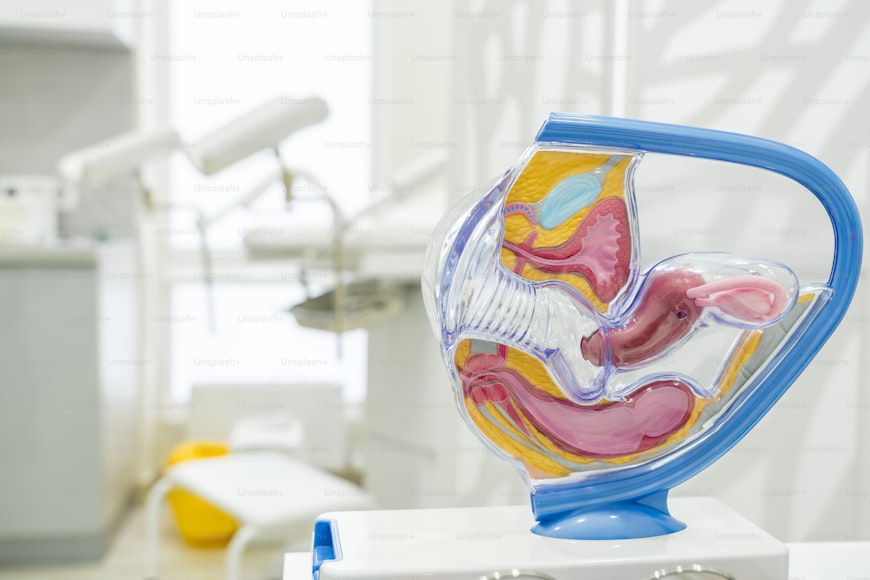Table of Contents
To accidentally put boric acid suppository in urethra can be a distressing and potentially harmful mistake. While boric acid suppositories are commonly used to treat certain vaginal infections, inserting them into the wrong opening can lead to serious discomfort and health risks. If you’ve found yourself in this situation, it’s crucial to stay calm and take appropriate action.

This article will guide you through what to do if you’ve mistakenly inserted a boric acid suppository into your urethra, the potential risks involved, and how to prevent such accidents in the future. Let’s dive into what you need to know about this delicate situation and how to handle it properly.
Boric Acid Suppositories and Their Intended Use
Boric acid suppositories are a common treatment option for certain vaginal conditions, but it’s crucial to understand what they are and how to use them correctly.
What are boric acid suppositories?
Boric acid suppositories are small, capsule-shaped medications containing boric acid powder. Boric acid is a mild antiseptic and antifungal agent that’s been used for over a century to treat various health issues. These suppositories are typically white or off-white in color and are designed to be inserted into the vagina. They’re about the size of the tip of your pinky finger and have a smooth, gelatin-like exterior that dissolves once inserted.
Common uses and proper application
Boric acid suppositories are primarily used to treat recurrent vaginal yeast infections, particularly those caused by non-albicans Candida species. They may also be recommended for some cases of bacterial vaginosis.
To use a boric acid suppository:
- Wash your hands thoroughly with soap and water.
- Remove the suppository from its packaging.
- Lie on your back with your knees bent or stand with one leg raised.
- Gently insert the suppository into your vagina as far as it will comfortably go.
- Wash your hands again after insertion.
Typically, these suppositories are used once daily for 3-7 days or as directed by your healthcare provider.

Importance of following instructions
It’s crucial to follow your healthcare provider’s instructions and the product’s directions carefully. Misuse or overuse of boric acid suppositories can lead to side effects or complications.
Some key points to remember:
- Never take boric acid orally, as it can be toxic if swallowed.
- Don’t use boric acid suppositories if you’re pregnant or might become pregnant.
- Stop use and contact your doctor if you experience any unusual symptoms or irritation.
- Always store boric acid suppositories out of reach of children and pets.
Remember, while boric acid suppositories can be effective for certain conditions, they’re not suitable for everyone. Always consult with a healthcare professional before starting any new treatment regimen.
Understanding the proper use and application of boric acid suppositories can help prevent accidental misuse, such as inserting them into the urethra instead of the vagina. If you’re unsure about how to use these suppositories correctly, don’t hesitate to ask your healthcare provider for a demonstration or more detailed instructions.

Recognizing the Mistake: Symptoms and Immediate Effects
If you’ve accidentally inserted a boric acid suppository into your urethra instead of your vagina, it’s important to recognize the signs quickly. Prompt identification can help you take appropriate action and seek medical attention if necessary.
Signs that indicate misplacement
The urethra and vagina have different sensitivities and reactions to foreign objects. Here are some signs that might indicate you’ve inserted the suppository into the urethra:
- Immediate, sharp pain or burning sensation: The urethra is much more sensitive than the vagina. Inserting anything into it typically causes immediate discomfort.
- Difficulty urinating: You might feel an urgent need to urinate, but find it painful or difficult to do so.
- Feeling of fullness in the bladder: This sensation might occur even if you’ve recently emptied your bladder.
- Visible irritation: The area around the urethral opening may appear red or swollen.

Potential immediate discomfort or reactions
Boric acid in the urethra can cause several immediate reactions:
- Stinging or burning: This sensation may be intense and persist even after removing the suppository.
- Increased urinary frequency: You might feel the need to urinate more often than usual.
- Discomfort in the lower abdomen: You may experience a dull ache or sharp pain in your lower belly.
- Mild bleeding: In some cases, the insertion might cause slight bleeding from the urethra. It’s crucial to note that these symptoms can vary in intensity from person to person. Some individuals might experience severe discomfort, while others might have milder reactions.
Distinguishing between vaginal and urethral insertion
It’s helpful to understand the difference in sensation between correct vaginal insertion and accidental urethral insertion:
- Vaginal insertion: When inserted correctly into the vagina, a boric acid suppository shouldn’t cause immediate pain. You might feel some mild discomfort or pressure, but it shouldn’t be sharp or intense.
- Urethral insertion: Insertion into the urethra will likely cause immediate, noticeable discomfort. The pain is usually sharper and more localized than what you’d experience with correct vaginal insertion. Remember, the urethra is a much smaller opening located above the vaginal opening. If you’re unsure about your anatomy, it can be helpful to use a mirror or ask a healthcare provider for guidance.
If you suspect you’ve accidentally inserted a boric acid suppository into your urethra, don’t panic. Remove it if possible, and rinse the area with clean water. If you experience severe pain, inability to urinate, or any concerning symptoms, seek medical attention immediately. It’s always better to err on the side of caution when it comes to your urinary health.

Immediate Steps to Take After Accidental Urethral Insertion
If you’ve accidentally inserted a boric acid suppository into your urethra, it’s important to act quickly and calmly. Here are the steps you should take:
Staying calm and assessing the situation
- Take a deep breath: It’s natural to feel anxious, but try to remain calm. Panic can make it harder to think clearly and take appropriate action.
- Assess your symptoms: Take note of any pain, discomfort, or unusual sensations you’re experiencing. This information will be helpful if you need to seek medical attention.
- If possible, remove the suppository: If you can see or easily reach the suppository, gently try to remove it. Do not force it or use any tools, as this could cause further injury.
Proper cleaning and care of the affected area
- Rinse the area: Use clean, lukewarm water to gently rinse the urethral opening and surrounding area. Avoid using soap, as it may cause further irritation.
- Urinate if possible: Emptying your bladder may help flush out any remnants of the boric acid. It might be uncomfortable, but it can help remove the irritant.
- Avoid further irritation: Don’t insert anything else into the urethra or vagina. Wear loose, comfortable clothing and avoid sexual activity until you’ve fully recovered.

When to seek immediate medical attention
While some cases might resolve with home care, it’s crucial to know when professional help is necessary.
Seek immediate medical attention if:
- You experience severe pain or burning that doesn’t subside.
- You have difficulty urinating or cannot urinate at all.
- You notice blood in your urine.
- You develop a fever, which could indicate an infection.
- You experience persistent abdominal pain6. The suppository is stuck and you can’t remove it safely
Even if your symptoms are mild, it’s advisable to contact your healthcare provider. They can provide guidance based on your specific situation and may recommend coming in for an examination to ensure there’s no lasting damage or developing infection.
There’s no need to feel embarrassed about seeking help. Your health and well-being are the top priority. In the meantime, do not try to “neutralize” the boric acid with other substances or home remedies. This could potentially cause more harm.
Stick to gentle rinsing with water and follow your healthcare provider’s advice.By taking quick, appropriate action and seeking medical help when necessary, you can minimize potential complications from this accidental misplacement of a boric acid suppository.

Potential Health Risks and Complications
When you accidentally put a boric acid suppository in your urethra, it’s crucial to understand the potential health risks. The act of accidentally putting a boric acid suppository in your urethra can lead to several complications:
Short-term effects on urethral and bladder health
If you accidentally put a boric acid suppository in your urethra, you may experience:
- Urethral irritation and inflammation (urethritis)
- Pain or difficulty urinating
- Increased urinary frequency and urgency
- Possible urinary tract infection (UTI)
Possible long-term consequences if left untreated
Failing to address the situation when you accidentally put a boric acid suppository in your urethra might result in:
- Chronic urethral irritation or inflammation
- Recurrent urinary tract infections
- In rare cases, kidney infection if bacteria travel up the urinary tract
Risks specific to boric acid exposure in the urinary tract
Accidentally putting a boric acid suppository in your urethra exposes this sensitive area to a chemical not meant for urethral use. This can lead to:
- Chemical irritation of the urethral and bladder lining
- Potential absorption of boric acid into the bloodstream, though usually minimal with a single exposure
- In very rare cases, systemic boric acid toxicity, causing nausea and vomiting
Remember, prompt medical care can usually prevent or address most complications if you accidentally put a boric acid suppository in your urethra.
Prevention and Education: Avoiding Future Incidents
To prevent accidentally putting a boric acid suppository in your urethra in the future, consider the following:
Tips for proper suppository insertion
To avoid accidentally putting a boric acid suppository in your urethra:
- Always carefully read and follow the provided instructions
- Use a mirror to familiarize yourself with your anatomy
- Insert suppositories while lying down for easier access to the correct opening
- Consider using a suppository applicator for more precise placement
- Ensure adequate lighting when inserting suppositories
- Choose a comfortable position allowing easy access to the vaginal opening
- Take your time to avoid mistakes

Alternative treatments and discussing options with healthcare providers
If you’re concerned about accidentally putting a boric acid suppository in your urethra:
- Discuss alternative treatments with your healthcare provider
- For recurring vaginal infections, explore underlying causes with your doctor
- Always consult your healthcare provider before starting any new treatment regimen
Remember, if you’re unsure about using boric acid suppositories or worry about accidentally putting a boric acid suppository in your urethra, don’t hesitate to ask your healthcare provider for guidance or a demonstration of proper use. Open communication with your healthcare team can help prevent accidents and ensure safe and effective treatment use.
Follow On:
